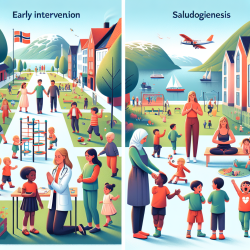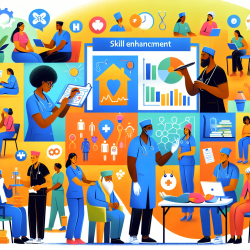In the rapidly evolving landscape of healthcare and social sciences, leveraging online platforms for data collection is becoming increasingly vital. A recent study titled "It just seemed like a perfect storm" explored the feasibility of using Facebook, Google Ads, and Reddit to gather data on abortion-seeking experiences from individuals who considered but did not obtain abortion care in the United States. This blog will delve into the study's findings and discuss how practitioners can apply these insights to improve their research methodologies and address barriers in healthcare access.
The Study's Approach
The study aimed to recruit participants who had considered but did not obtain an abortion using three online platforms: Facebook, Google Ads, and Reddit. Over one month, researchers successfully captured data from 66 individuals who faced multiple barriers to accessing abortion care. The study highlighted that online recruitment could effectively identify and survey an understudied population about their experiences.
Key Findings
- Multiple Barriers: Participants reported various barriers such as financial constraints, legal restrictions, logistical challenges, and social stigma. These barriers often intersected, exacerbating the difficulties in accessing care.
- Preference for Medication Abortion: Some participants expressed a strong preference for medication abortion over surgical options, influenced by misconceptions about safety and fetal pain.
- Lack of Information: Many participants lacked accurate information about abortion costs, procedures, and legal restrictions. This gap hindered their ability to make informed decisions.
Implications for Practitioners
The findings from this study offer valuable insights for practitioners looking to enhance their research methodologies or develop interventions to improve healthcare access:
Utilizing Online Platforms
The success of this study in recruiting participants through online platforms suggests that practitioners should consider incorporating digital recruitment strategies into their research designs. Platforms like Facebook and Google Ads offer broad reach and can target specific demographics efficiently.
Addressing Information Gaps
Practitioners should focus on providing comprehensive information about healthcare options. This could involve training general healthcare providers to discuss all pregnancy options during routine exams or contraception counseling. Additionally, creating educational campaigns to raise awareness about available services can help bridge information gaps.
Tackling Financial Barriers
Financial constraints were a significant barrier identified in the study. Practitioners can advocate for policy changes that expand insurance coverage for essential healthcare services. Moreover, raising awareness about financial assistance programs can alleviate some of the financial burdens faced by patients.
Encouraging Further Research
This study underscores the importance of exploring alternative recruitment methods to capture diverse populations' experiences. Future research should aim to include a broader range of participants to understand better the magnitude and scope of barriers in healthcare access. By refining online recruitment strategies, researchers can gain deeper insights into the challenges faced by underserved populations.
Conclusion
The use of online platforms for data collection presents a promising avenue for healthcare research. By implementing the insights gained from this study, practitioners can improve their methodologies and develop targeted interventions to address healthcare access barriers effectively. To further explore these findings and apply them in your practice, consider reviewing the original research paper.
To read the original research paper, please follow this link: “It just seemed like a perfect storm”: A multi-methods feasibility study on the use of Facebook, Google Ads, and Reddit to collect data on abortion-seeking experiences from people who considered but did not obtain abortion care in the United States.










